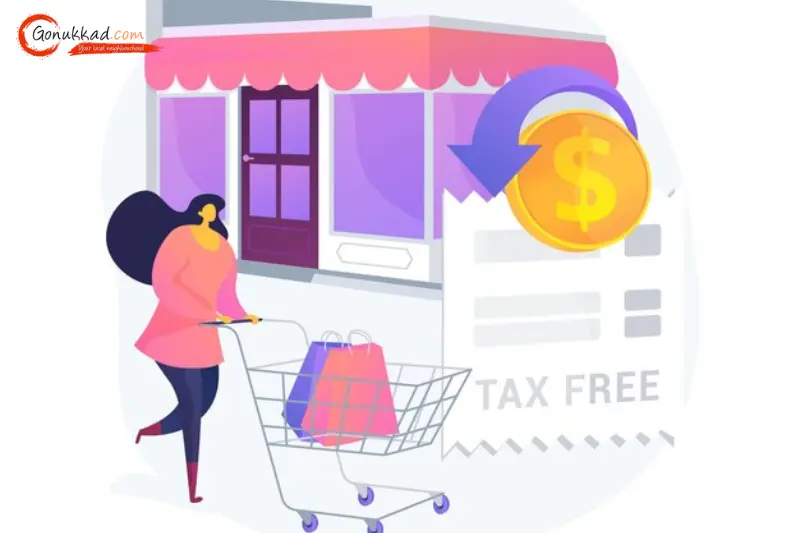28 November, 2023

Last updated on 2 May, 2024
Written by Content Team
Discover the Top GST Exempted Category Amazon in 2024
Explore the most crucial aspects of the GST Exempted Category Amazon in 2024. Learn how to sell on Amazon without GST and understand the GST-exempted category.
GST, India's unified indirect tax, doesn't apply universally, leaving certain products GST-free. In 2024, Amazon, one of the leading e-commerce platforms, has outlined specific categories that are exempted from GST, offering a unique opportunity for sellers. This pivotal fact brings to light the GST Exempted Category Amazon, a segment often overlooked yet significant for e-commerce. In this blog, we'll explore the most crucial aspects of the GST Exempted Category Amazon in 2024.
GST-exempted products, as the name implies, are those goods and services that aren't subject to the Goods and Services Tax. These goods and services are not liable for GST, which can greatly influence the pricing and competitive positioning of products on Amazon.
For Amazon sellers, grasping the concept of the GST Exempted Category is vital. It plays a significant role in not only determining the price point of their products but also in ensuring adherence to tax regulations. Opting to sell products that fall within the GST-exempted category can be a smart strategy, particularly for newcomers in the market or for those aiming to diversify their product offerings.
GST exemptions are granted under specific conditions, as outlined in Section 6 and Section 11 of the GST Act. There are three primary ways through which a product can be exempted from GST:
1. General Exemption: Based on the GST Council's recommendations, the Central Government may grant a general exemption for the public interest. This exemption can be total or partial, and it might come with specific conditions as detailed in the relevant notification.
2. Special Order: In particular instances, upon recommendation by the GST Council, the Central or State Government may issue a special order granting an exemption for a specific case.
3. Notification Exemption: Certain goods are exempted from GST through a formal notification.
Here is a step-by-step guide on how to sell online without a GST registration:
1. Identify GST-Exempt Goods or Services: Begin by selecting a product or service that is not subject to GST.
2. Choose an Online Marketplace: Opt for a digital platform like eBay, Flipkart, or others suitable for selling your chosen items.
3. Set Up a Seller Account: Register as a seller on your chosen online marketplace.
4. List Your Product: Create and upload listings for your products on the marketplace.
5. Implement Online Payment Processing: Utilize digital payment services like Paypal or Razorpay to handle transactions.
6. Organize Product Delivery: Partner with courier services such as USPS or FedEx for shipping your products to customers.
7. Manage Customer Service: Utilize your seller dashboard to offer effective customer support and service.
8. Market Your Products: Develop and implement branding and marketing strategies to promote your goods effectively.
Considering the above criteria, the following are categories of GST-exempt products available on Amazon:
1. Cereals
2. Fresh fruits and vegetables (excluding frozen or processed)
3. Fresh edible roots, tubers, fish, and meat (excluding packaged or processed forms)
4. Tender coconut
5. Jaggery
6. Fresh tea leaves (unprocessed)
7. Coffee beans (unroasted)
8. Various seeds
9. Fresh ginger
10. Salt
11. Turmeric
12. Betel leaves
13. Papad
14. Non-branded flours like gram and whole wheat
15. Natural honey (non-branded)
16. Unpackaged paneer
17. Bread
18. Puffed rice
19. Eggs
20. Dairy items including milk, curd, lassi, and buttermilk
21. Aquatic and cattle feed, including poultry feed
22. Supplements
1. Raw silk, jute, wool
2. Silk waste
3. Khadi fabric
4. Cotton for khadi yarn
5. Raw jute fiber
6. Firewood
7. Charcoal
8. Handloom fabrics
1. Hearing aids
2. Manual tools like spades and shovels
3. Agricultural tools
4. Handcrafted musical instruments
5. Devices and implements for the physically challenged
1. Books, maps, newspapers, journals
2. Non-judicial stamps, postal items
3. Children's coloring and drawing books
4. Educational services
5. Live animals (excluding horses)
6. Beehives
7. Human hair, blood, semen
8. Bangles
9. Chalk sticks
10. Contraceptives
11. Earthen pots
12. Religious items such as idols, bindi, kumkum
13. Kites
14. The Indian national flag
15. Gandhi topi
16. Organic manure
17. Vaccines
Mastering the GST Exempted Category Amazon is a key strategy for sellers in 2024. By leveraging these categories, you can navigate the complex world of online sales more efficiently, reducing tax liabilities while boosting market presence. Staying informed and adaptable in the face of evolving e-commerce trends and regulations is essential to harness the full potential of these GST exemptions. For those looking to enhance their online presence and fine-tune their Amazon seller account, GoNukkad is the go-to solution.
Q. Can I sell on Amazon without GST?
A. You can sell items like books or other GST-exempt products on Amazon without a GST number. However, for most other products, having a GST number is required.
Q. How can I sell products online without a GST number?
A. To start selling products online without a GST number, you simply need to create an account on an e-commerce platform and begin listing your GST-exempt products.
Q. Where can I find the latest GST exempted products list for Amazon?
A. The latest GST-exempted products list can typically be found on Amazon's seller resources and official government tax websites.
Q. How does selling GST exempted products on Amazon benefit me?
A. Selling GST-exempted products can simplify tax compliance, make pricing more competitive, and attract a specific customer segment.
Q. What should I do if the GST exemption status of my product changes?
A. If the GST exemption status of your product changes, update your product listings and pricing accordingly. It’s also important to stay informed about such changes through official GST notifications and Amazon updates.
Amplify sales with our expert account management. Unleash your true potential now!
Call Us